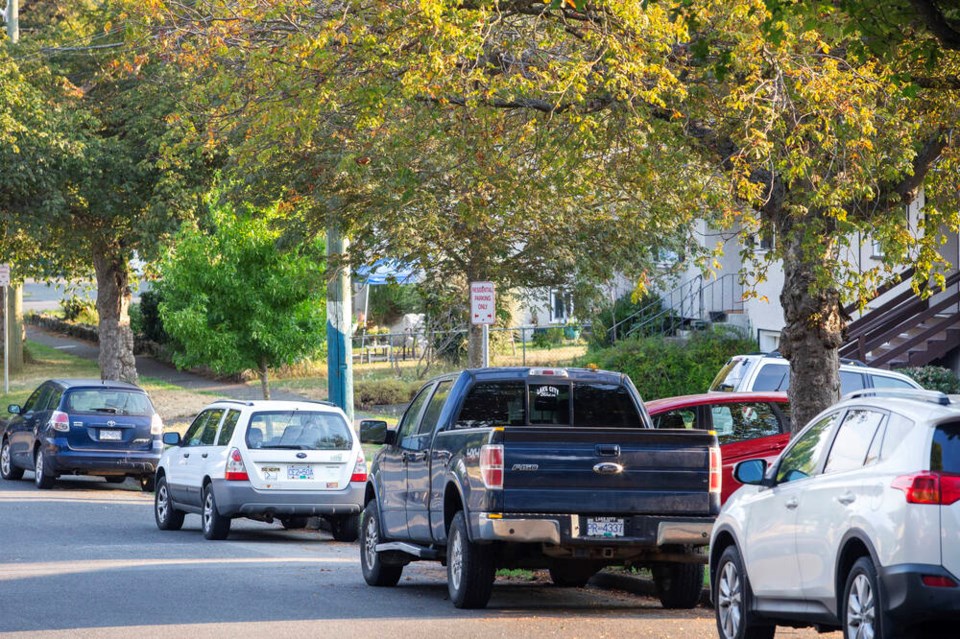Technology
Cities Shift Focus to Innovative Parking Solutions Amid Decline in Driving

Urban areas worldwide are reevaluating their parking strategies as trends show a marked decline in driving. According to recent studies, cities that invest in non-automotive modes of transportation are witnessing a significant shift in parking needs. This change highlights the urgency for smarter solutions to address longstanding parking problems.
Changing Landscape of Urban Mobility
Data suggests that driving has peaked, leading to a new era in urban mobility. Research indicates that in cities like Amsterdam and San Francisco, the emphasis on public transport systems, cycling infrastructure, and pedestrian-friendly environments has played a crucial role in reducing the dependency on personal vehicles. As a result, parking demand is evolving, requiring innovative solutions to better utilize urban space.
The impact of this shift is evident in the strategies adopted by city planners. Cities are increasingly integrating technology and sustainable practices into their parking management systems. For instance, Los Angeles has begun to implement smart parking meters that adapt to real-time demand, reducing congestion and optimizing space usage.
Investing in Alternatives
The decline in driving has prompted local governments to reconsider their funding priorities. Instead of allocating resources solely to parking facilities, many cities are now investing in transportation alternatives. This includes expanding public transport networks and developing bike-share programs to cater to changing mobility preferences.
According to the Institute for Transportation and Development Policy, urban areas that prioritize walking, biking, and public transport not only enhance mobility but also contribute to environmental sustainability. The organization estimates that reducing car dependency can lower greenhouse gas emissions by up to 20% in urban settings.
In response to these trends, cities are also exploring creative parking solutions, such as converting underutilized spaces into green areas or community hubs. This approach not only addresses parking needs but also enhances the overall quality of urban life.
The transition towards smarter parking solutions reflects a broader recognition that urban mobility is not solely about cars. With the right investments, cities can create more livable environments that prioritize accessibility, sustainability, and community engagement.
As cities adapt to these changing needs, the future of urban parking looks set to evolve in innovative directions. The focus on non-automotive modes of transport represents not just a trend, but a necessary shift in how urban spaces are designed and utilized.
-

 Lifestyle1 week ago
Lifestyle1 week agoWinnipeg Celebrates Culinary Creativity During Le Burger Week 2025
-

 Science3 weeks ago
Science3 weeks agoMicrosoft Confirms U.S. Law Overrules Canadian Data Sovereignty
-

 Education2 weeks ago
Education2 weeks agoRed River College Launches New Programs to Address Industry Needs
-

 Technology3 weeks ago
Technology3 weeks agoDragon Ball: Sparking! Zero Launching on Switch and Switch 2 This November
-

 Science3 weeks ago
Science3 weeks agoTech Innovator Amandipp Singh Transforms Hiring for Disabled
-

 Technology3 weeks ago
Technology3 weeks agoWorld of Warcraft Players Buzz Over 19-Quest Bee Challenge
-

 Technology3 weeks ago
Technology3 weeks agoGoogle Pixel 10 Pro Fold Specs Unveiled Ahead of Launch
-

 Science3 weeks ago
Science3 weeks agoChina’s Wukong Spacesuit Sets New Standard for AI in Space
-

 Science3 weeks ago
Science3 weeks agoXi Labs Innovates with New AI Operating System Set for 2025 Launch
-

 Technology3 weeks ago
Technology3 weeks agoNew IDR01 Smart Ring Offers Advanced Sports Tracking for $169
-

 Technology3 weeks ago
Technology3 weeks agoGlobal Launch of Ragnarok M: Classic Set for September 3, 2025
-

 Technology3 weeks ago
Technology3 weeks agoFuture Entertainment Launches DDoD with Gameplay Trailer Showcase
-

 Technology3 weeks ago
Technology3 weeks agoHumanoid Robots Compete in Hilarious Debut Games in Beijing
-

 Science3 weeks ago
Science3 weeks agoNew Precision Approach to Treating Depression Tailors Care to Patients
-

 Technology3 weeks ago
Technology3 weeks agoInnovative 140W GaN Travel Adapter Combines Power and Convenience
-

 Business3 weeks ago
Business3 weeks agoNew Estimates Reveal ChatGPT-5 Energy Use Could Soar
-

 Health3 weeks ago
Health3 weeks agoGiant Boba and Unique Treats Take Center Stage at Ottawa’s Newest Bubble Tea Shop
-

 Science3 weeks ago
Science3 weeks agoNew Study Reveals Surprising Impact of Gratitude on Helping Behaviors
-

 Technology3 weeks ago
Technology3 weeks agoBorderlands 4 Promises Massive Changes with 30 Billion Guns
-

 Technology3 weeks ago
Technology3 weeks agoDiscover the Relaxing Charm of Tiny Bookshop: A Cozy Gaming Escape
-

 Technology3 weeks ago
Technology3 weeks agoQuoted Tech Launches Back-to-School Discounts on PCs
-

 Lifestyle3 weeks ago
Lifestyle3 weeks agoVancouver’s Mini Mini Market Showcases Young Creatives
-

 Education2 weeks ago
Education2 weeks agoAlberta Teachers’ Strike: Potential Impacts on Students and Families
-

 Business1 week ago
Business1 week agoZellers Set to Return to Edmonton Mall in Former Hudson’s Bay Space










